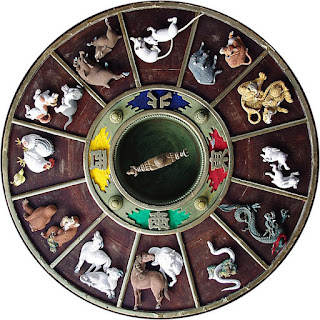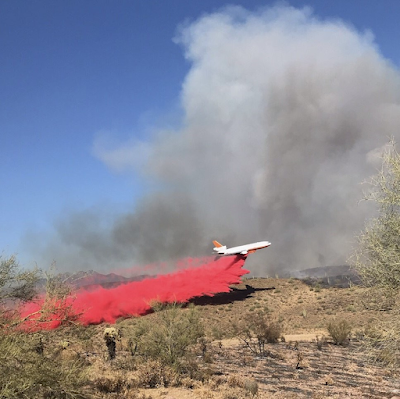 |
(Jakub Hałun, CC BY-SA 4.0 <https://creativecommons.org/licenses/by-sa/4.0>, via Wikimedia Commons) |
A forum where students of fire and leadership come together to discuss, debate and exchange leadership development concepts, experience, and thoughts with an intent to promote cultural change in the workforce and strengthen the wildland fire service and the communities they serve.
Thursday, February 15, 2024
Releasing the Pebble
Friday, February 9, 2024
Self-Reflection and You
 |
| (Photo Credit: Leadership Freak) |
- Learn from your failures, mistakes, and experiences.
- Clarify your values, priorities, and strengths.
- Release emotional attachment to people, things, and events.
- Make better choices, independent decisions, and new associations.
- Remove inner roadblocks that hold you back from achieving your goals.
- Examine your habitual behavior patterns and intuitive feelings.
- Uncover hidden dreams and aspirations as well as undiscovered potential.
- Gain deeper insights into your thoughts and a vast array of experiences.
- Expand your perspective and understanding of people and situations.
- Better spot potential problems and opportunities in advance.
- Respond calmly and appropriately to challenges that may have otherwise hindered your progress.
- If you are not self-reflective, how can you truly know yourself?
- If you do not know yourself, how can you lead yourself?
- And if you cannot lead yourself, how can you possibly lead others?
- Read Dan Rockwell's Leadership Freak blog "5 Ways to Rest and Rejuvenate."
- Read From Values to Action or watch Harry Kraemer's keynote below.
About the Author: Pam McDonald is a writer/editor for BLM Wildland Fire Training and Workforce Development. The expressions are those of the author.
Friday, February 2, 2024
Match, Set, Point: What Do You Tell Yourself
 |
| Photo Credit: Arron Bartz |
Author: Christopher Ayer, Corona De Tucson Fire Department
Personally, December through about February is the hardest
part of the year. It’s cold, dark, and there is rain, probably snow, in other
places (not so much in Region 3)—not the most ideal burn conditions for new
starts or IA responses. My fix for the problem is watching fire videos on
YouTube, namely WFSTAR and documentaries. If the video contains wildfire
content, there is a good chance I’ve seen it by February. There are a couple of
new documentaries about the origins of the smokejumpers and old fire watch
system from the early 1930s that were extremely motivational. Wanting to be
headed to IA brought up an idea that I would like to share from my time playing sports professionally.
An IA response is amazing; it is the “Friday Night Lights” or
playing on “Sunday” or “Big Monday” of our profession. It’s the high stakes of
our job and personally some of the most exciting. Playing on national TV or
ESPN is much the same as initial attack, the same adrenaline, and the same
excitement. The reactions that people have in the back of the engine/buggy is
the same as you have in locker room or at shoot around. That freshman point
guard who just got the opportunity to start or the first season back seat
firefighter is going through the same emotions and excitement. We have all
watched that newbie (said with compassion) who is bouncing off the walls
falling asleep 45 minutes later, having nothing left to give when we get on
scene to work. In basketball, they speed through shoot around drills going a
100 miles per hour, sprinting and geeked up; and surprise, they crash about 20
minutes into the game that night.
Sports has spent years and tons of money implementing and
utilizing psychology to better prepare athletes for big games and complex
decision making under pressure. Yet we don’t really talk about or apply any of
those same tactics to firefighting. I was guided by a coach to read a book, Inner
Game of Tennis by Timothy Gallwey, that wasn’t even about basketball. I was
appalled he would even suggest it. Tennis? Really! But what other sport offers
such a mental aspect of a game based around your own mental ability completely
challenged by an opponent having to go through the exact same struggles. Having
to step up and serve to another person knowing that they going to return just
to start the game, then it’s a back and forth just to try and earn a point,
mainly by someone making a mistake. There is no time to think and the moments
that you do; it is paramount to be focused, confident, positive. A slipup can
turn into a snowball down a mountain from which you aren’t going to recover. The
game is one mistake after another, turnovers resulting in a momentum swing that
ends the game. Sounds familiar to a lot of IA response, some seem to be smooth
and effortless while others are doomed from the start.
For me, Inner Game of Tennis hammered home the
concepts of internal self-talk and not allowing mistakes to multiply. How often
do you get caught up after a simple mistake? “Why did you do
that?” or “What were you thinking?” These simple mental monologues seem
harmless enough, but how large an affect do they have two or three decisions
down the line? Are we setting ourselves up for failure with the way we are
mentally applying ourselves to our task? If we are openly saying this when a
subordinate or a co-worker make a mistake, are we building a winning team or
are we dooming ourselves from being a championship winning program or cohesive engine
crew. When people are dialed in mentally and focused on a common goal, they are
more accomplished.
I realize that sports and firefighting seem extremely far
apart, and the stakes are much different but how much different is the mental
preparation? Confidence, calm, action driven, determined, are all descriptions
of any high-level competitive athlete, and most describe ideal personality
traits that we all want in a firefighter or IC. So, if the traits are the same,
why not looking for alternative avenues to gain understanding and growing the
people around us. On that note, I recommend the Inner Game of Tennis as
an easy start. I’m sure there are other lessons that can be taken from it, but
for me that inter monologue has done wonders to make me more proficient at my
job.
Christopher
Ayer is a Firefighter/Firefighter Engine Boss Trainee/Paramedic for Corona De
Tucson Fire Department in Tucson, Arizona. The expressions and views are those
of the author.